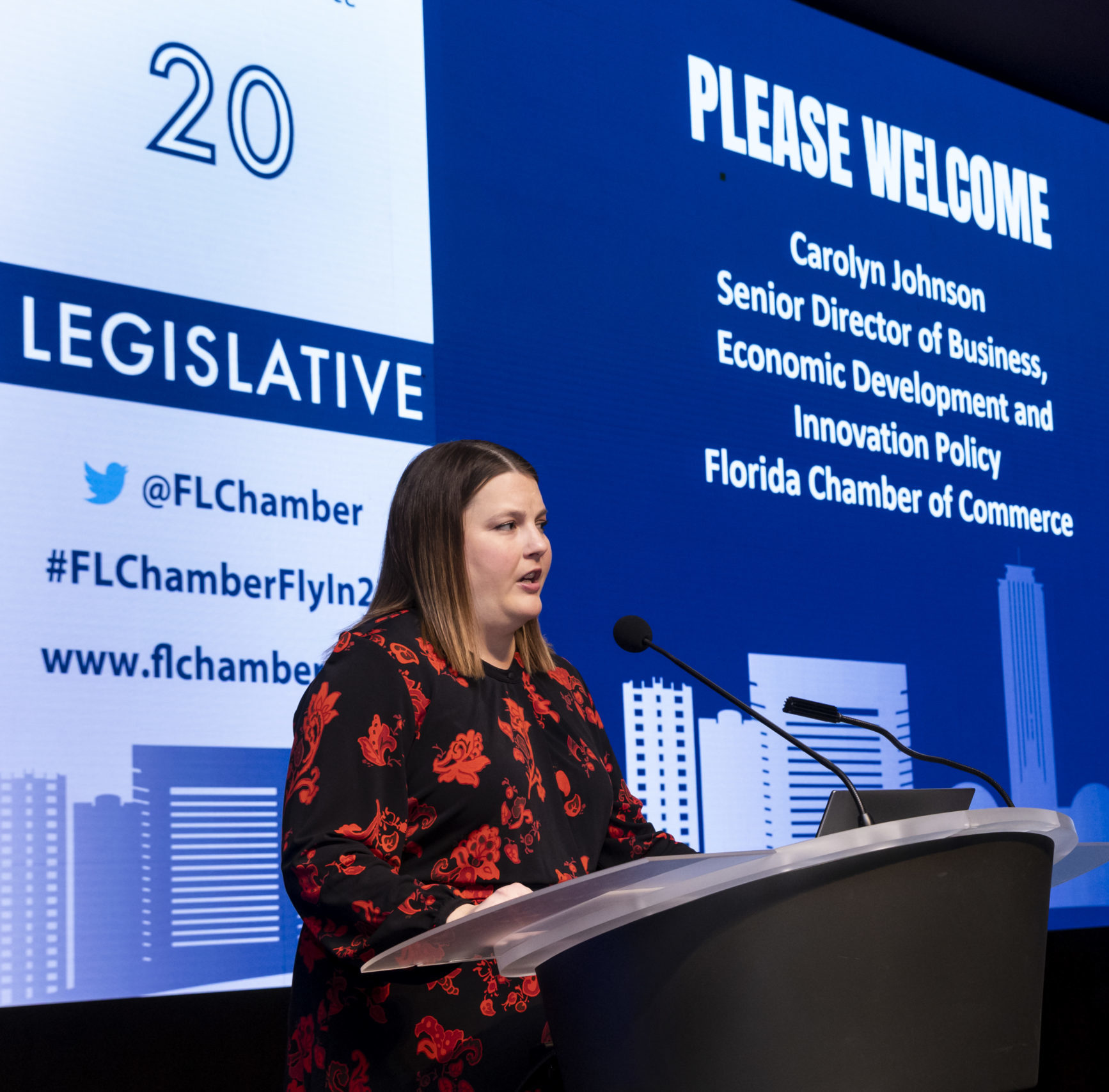
By: Carolyn Johnson, Sr. Director of Business, Economic Development and Innovation Policy, Florida Chamber of Commerce
Governor DeSantis recently announced his intent to call another special session in May to address Florida’s property insurance crisis. The legislature failed to pass property insurance reform during the 2022 regular session because of differences in the House and Senate. It is unclear at this time if meaningful reforms will be agreed upon by the Governor, Senate President and House Speaker. If there are meaningful reforms, there are several Florida 2030 Blueprint goals dealing with Florida’s property insurance market that could benefit from legislative action.
Florida 2030 Blueprint Goal: Legal Climate Improved to Top Quartile in the Nation
National data shows that Florida accounts for 8 percent of all property insurance claims but accounts for over 76 percent of all homeowners’ insurance lawsuits – a number now approaching 80 percent, according to Florida Insurance Commissioner David Altmaier’s testimony before the Florida Cabinet last month. This is driven by Florida’s bottom-five legal climate and has clearly impacted the financial health of the property insurance market with underwriting losses and nearly $15 billion in claims since 2013. Exacerbating the problem is Florida’s one-way attorney fee statute which has been manipulated into a tool to increase fraud and drive attorney payouts. Data shows that for the $15 billion in claims that has been paid since 2013, 71 percent has been paid to plaintiffs’ attorneys and only 8 percent has gone to property owners to pay for their losses. The Florida Legislature adjusted the one-way attorney fee statute in 2019 through Assignment of Benefit reforms and again in 2021 with the passage of SB 76. Given that lawsuits and claims have continued to rise in the first quarter of 2022, it might be time to repeal the one-way attorney fee statute once and for all rather than continue the game of whack-a-mole with trial lawyers coming up with new schemes to circumvent each legislative tweak. Prior to now, the legislature has addressed specific loopholes that attorneys have used to drive litigation or cracked down on specific types of claims, such as sinkholes. Florida is one of the only states that has a one-way attorney fee for insurance claims, and by eliminating this fee-shifting statute, you immediately remove the incentive to litigate.
Florida 2030 Blueprint Goal: Actuarially Sound Property Insurance Rates Based on Actual Risk and Competition
Citizens Property Insurance Corporation, the state’s intended insurer of last resort, is currently growing at over 5,500 policies/week as private insurers reduce their number of policies in Florida or go out of business. Citizens Property Insurance rates are also capped and cannot increase by more than 11 percent/year, despite the fact that many in the private market are increasing rates by 20-40 percent. This means that Citizens Property Insurance rates are more affordable than the private market- in fact, 99 percent of Citizens rates are less than the private market – but artificially so. Legislation was filed during the 2022 regular session and could resurface during the special session that would allow private companies to take a policy from Citizens Property Insurance if the private company charges within 20 percent of Citizens’ premium. Another proposal offered earlier this year would remove second homes from the “glide path,” effectively uncapping rates. Both proposals would allow the private market to be more competitive with Citizens Property Insurance and help return Citizens to the insurer of last resort.
Florida 2030 Blueprint Goal: Regulatory, Labor and Operating Risk Environments Rated Among Top 5 in the Nation
Florida’s property insurance market has been described as “dire” or on “life support” by top regulators and insurance officials. It is not just the risk of catastrophes such as hurricanes that have challenged Florida’s insurance market, but non-catastrophic claims from roofs or broken pipes. If meaningful reforms are addressed during the special session, the operating risk for Florida’s insurance companies would be much improved and Florida’s competitiveness enhanced.